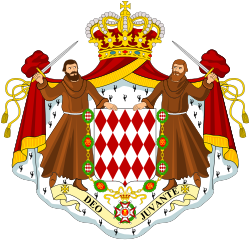| | |||||||||||||||||||||||
| |||||||||||||||||||||||
All 24 seats in the National Council 13 seats needed for a majority | |||||||||||||||||||||||
This lists parties that won seats. See the complete results below.
| |||||||||||||||||||||||
 |
|---|
General elections were held in Monaco on 3 February 2008. [1] The Union for Monaco was re-elected, though with a reduced margin of victory.